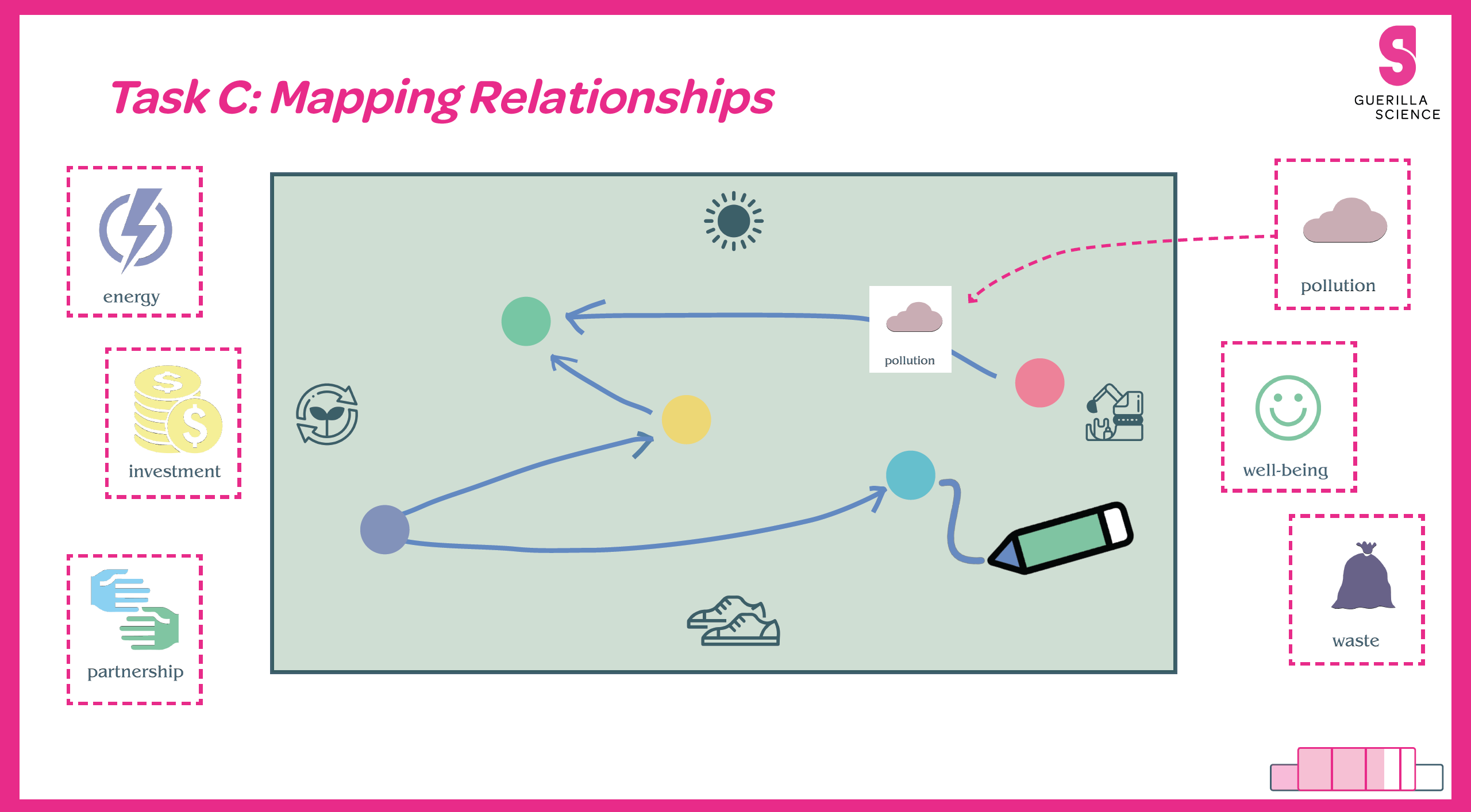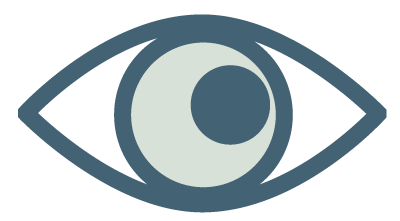Megacity Survival 2050,
Commissioned by Guerilla Science + Royal Engineering Society,
public engagement grant from the Royal Engineering Society
A project that explored the future of urban spaces by empowering young people to envision speculative future scenarios and use engineering to design solutions for challenges around urbanisation and climate change.
I was commissioned to develop and facilitate a participatory workshop which was rolled out across two schools based in Peckham, and took place via online platforms due to Covid-19 restrictions.
The intentions of the workshops were to:
- challenge the traditional image of engineering and inspire greater diversity within the field, opening pathways for more women, people from minority ethnic communities and those from disadvantaged backgrounds to consider a future in engineering
- celebrate the breadth and influence of engineering, how it has shaped the world around us, and the innovations being developed for the future
See below a link to one of the outcomes, and my process story of designing the workshop
Click to see outcome video︎︎︎


︎︎︎
My intention behind the workshop was to provide participants with an experience-based window into the world of engineering. I began the workshop design by interviewing 8 engineers working in different sectors; 4 above ground and 4 below ground. I conducted 1-1 interviews with the engineers, so that I could gain a deeper understanding of the day-to-day skills and situations engineers experience at work. I then mapped and synthesized our conversations to source common themes which fed directly into the design of the workshop content.
“I learnt that the world and our lives can be different”
participant feedback
︎︎︎
The premise of the workshop led participants through different engineering stages of designing a fictional district in a megacity.
The overarching framework for the workshop series meant each workshop outcome linked together to make a Megacity.

︎︎︎
I set the workshop in a speculative future, giving the participants roles of high influence in their city’s development.


︎︎︎
To engage an expansive thinking, I gave participants fictional engineering roles, which I created using a random-word generative software using articles about the future of Megacities. These roles then opened up a playful nature to the workshop, to engage more complex thinking.
︎︎︎
Midway through the workshop, the particpants called ‘engineers from the past’ - real-time engineers from my research stage- to ask for advice during problem solving tasks. This presented the participants on an equal level with the Engineers, allowing for a more free-flowing dialogue between the pupils and engineers.
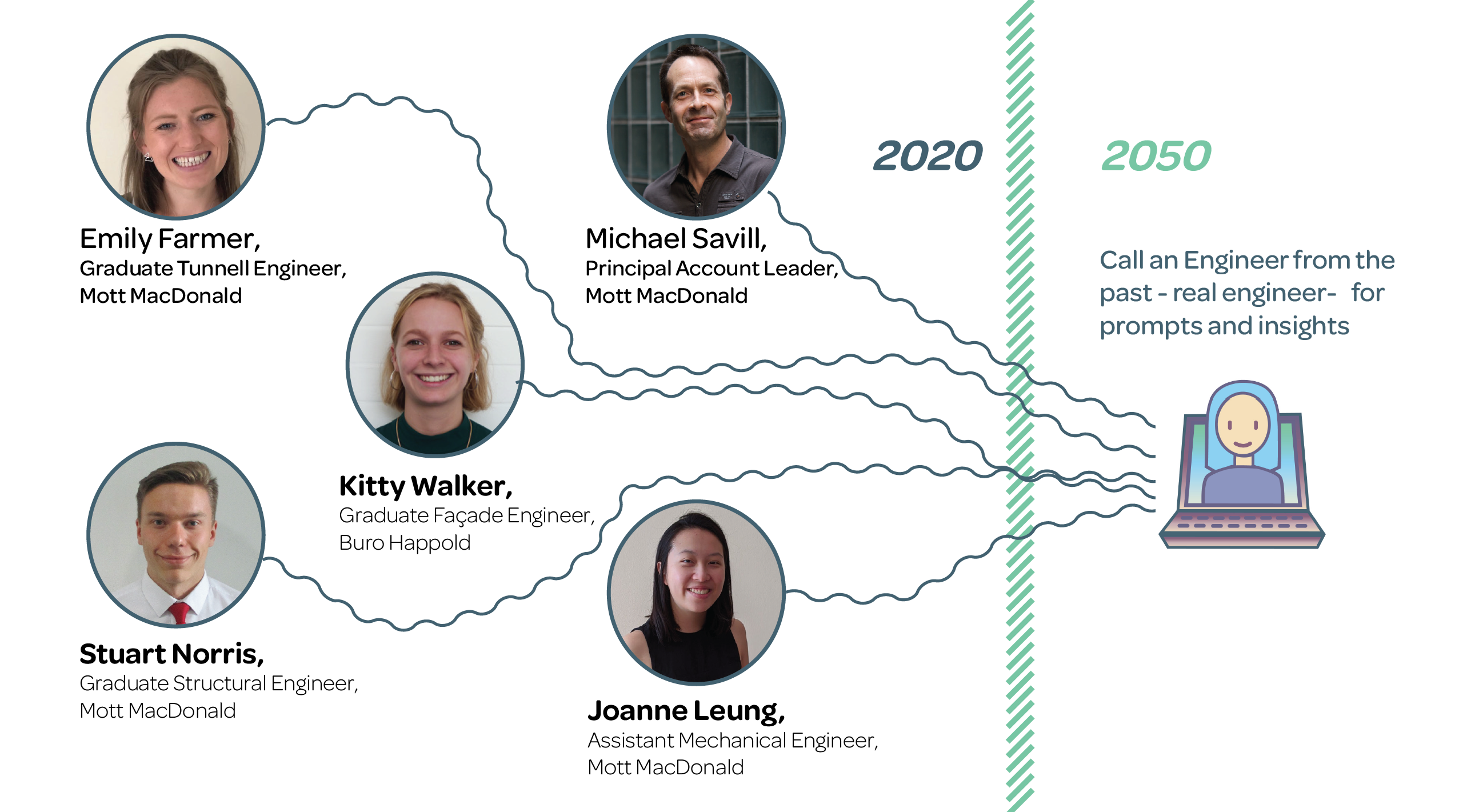
︎︎︎
Due to covid, the workshops were run remotely in two different phases. For the first workshop setup everyone was remote. For the 2nd and 3rd workshops the pupils were in their classroom and I called in, remotely.
This meant I had to be agile and adaptable with the design content for the workshop.
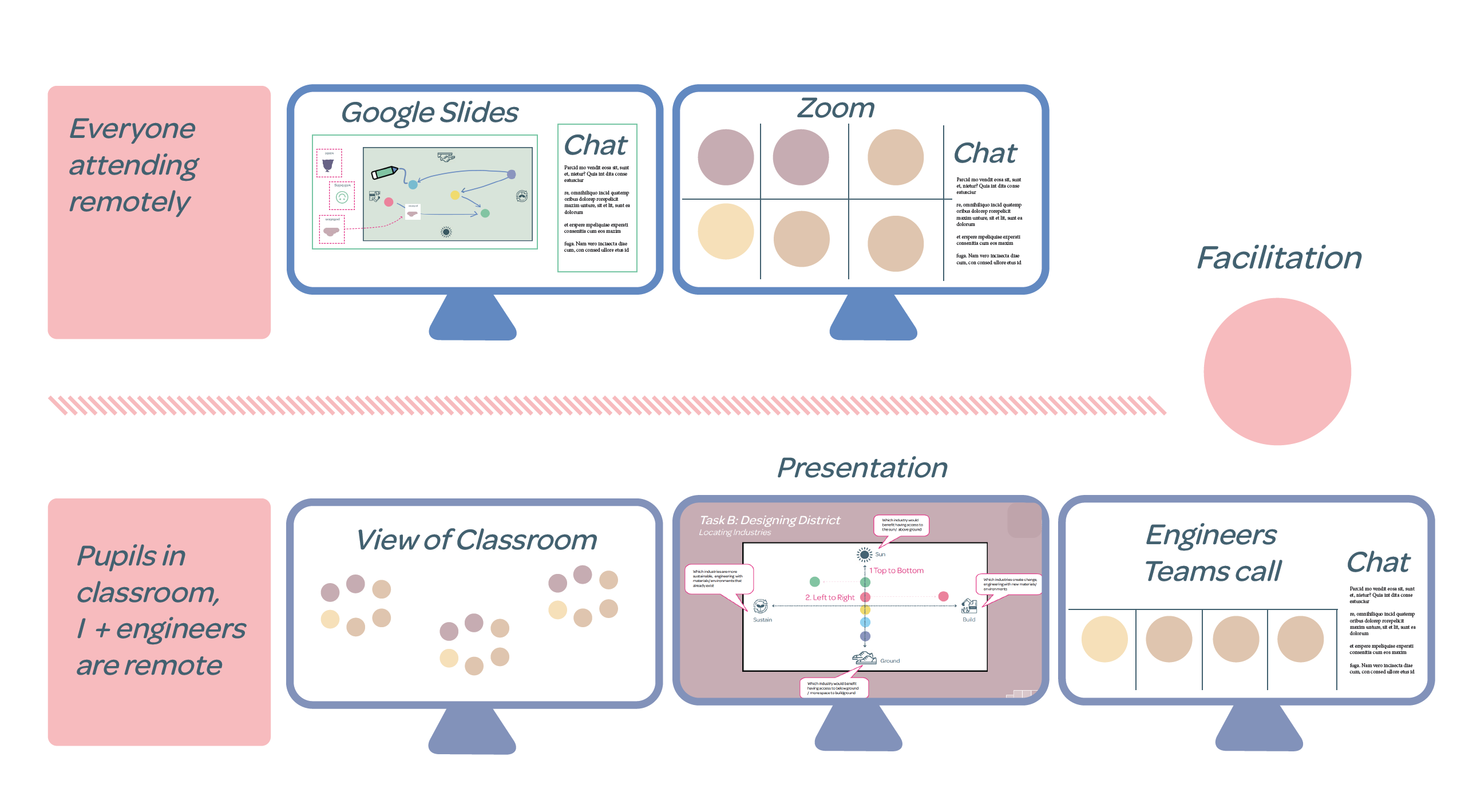
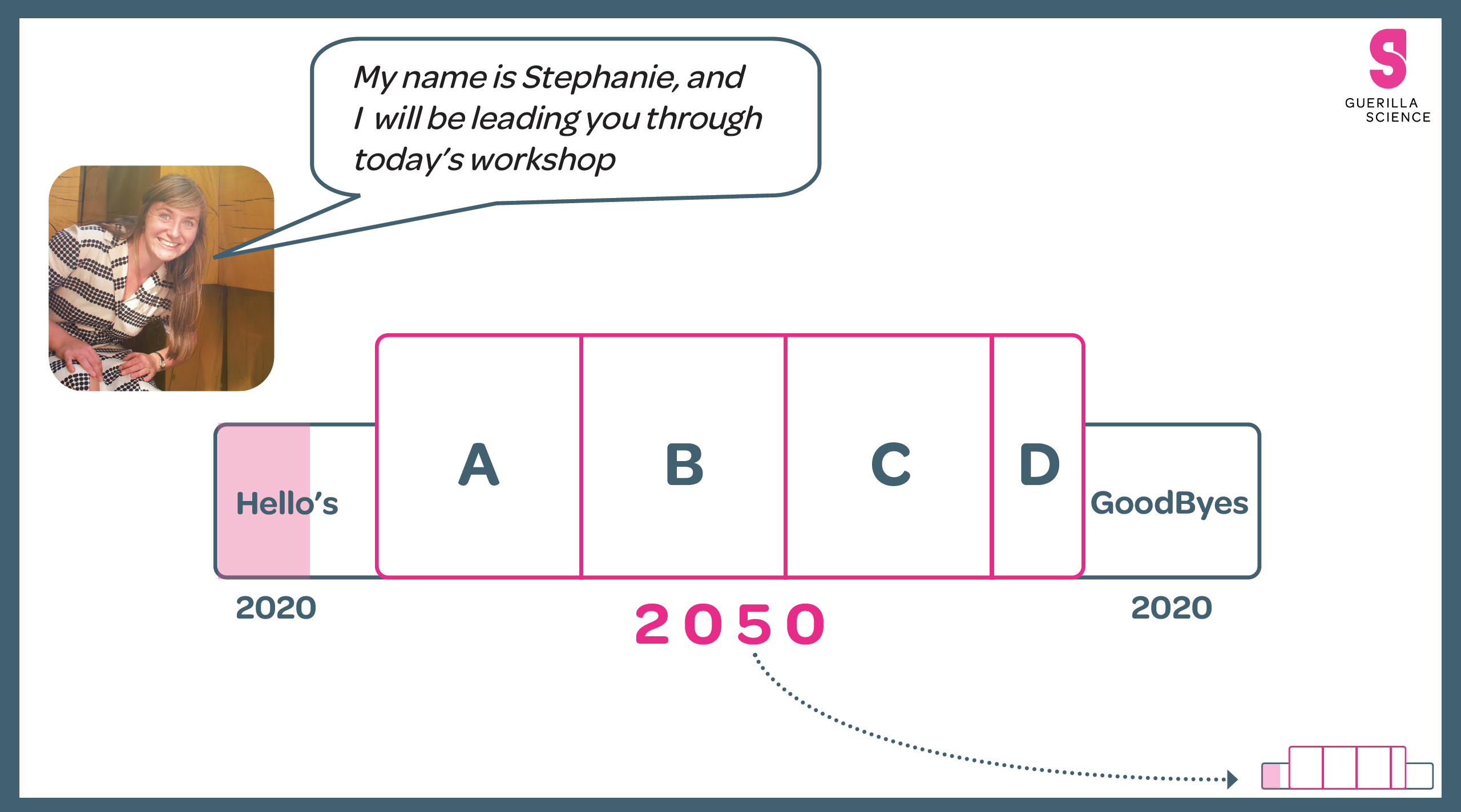
︎︎︎
To ensure a high energy during the workshop, I used content design to make the experience feel more engaging, and adopted a performative approach in my facilitation.
I did this by including multiple checkin points with the pupils, both verbally and through the content design.
︎︎︎
The participants definined their fictional industries through a series of questions, and created visual identities through a collage activity using an icon library.
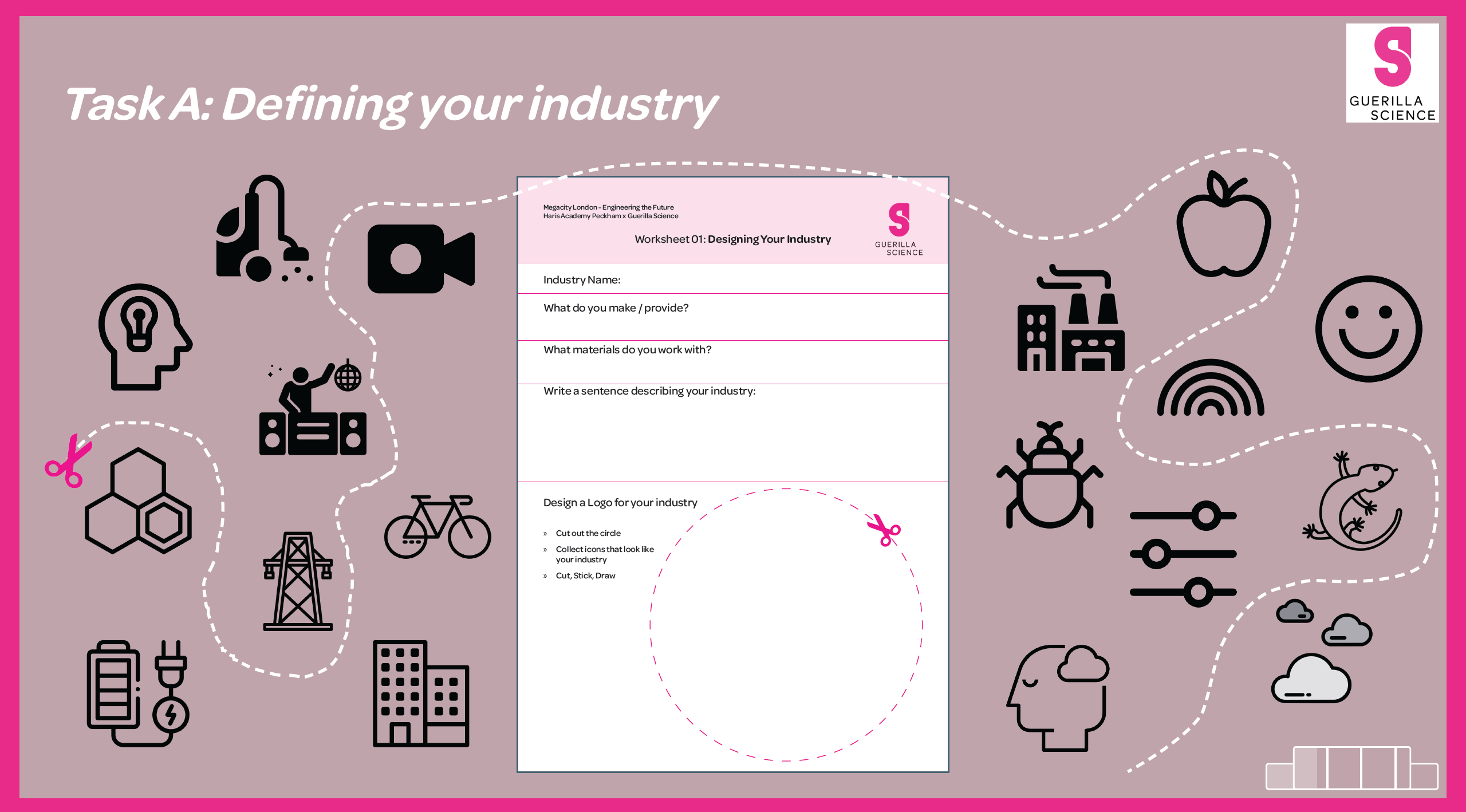
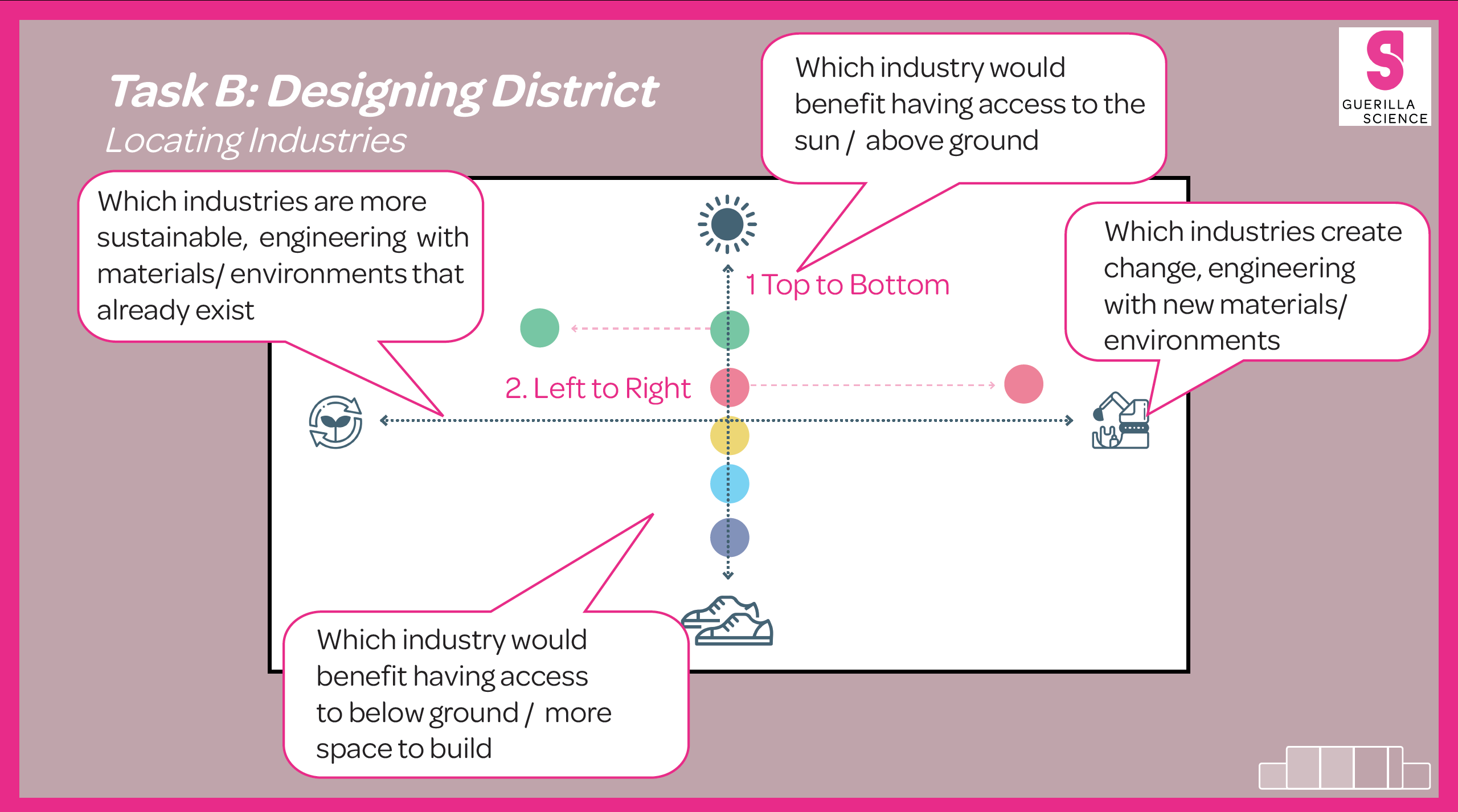
︎︎︎
Groups were then asked to position their industries on the distict map, according to their relationship to the four axis:
Sustainble materials
︎︎︎New materials
Access to daylight,
︎︎︎︎︎︎
Access to underground networks
︎︎︎
I then asked the participants to map the relationships between their industries. I asked them to think about how the idustries could work together and share resources. This engaged the participants into systems thinking.
